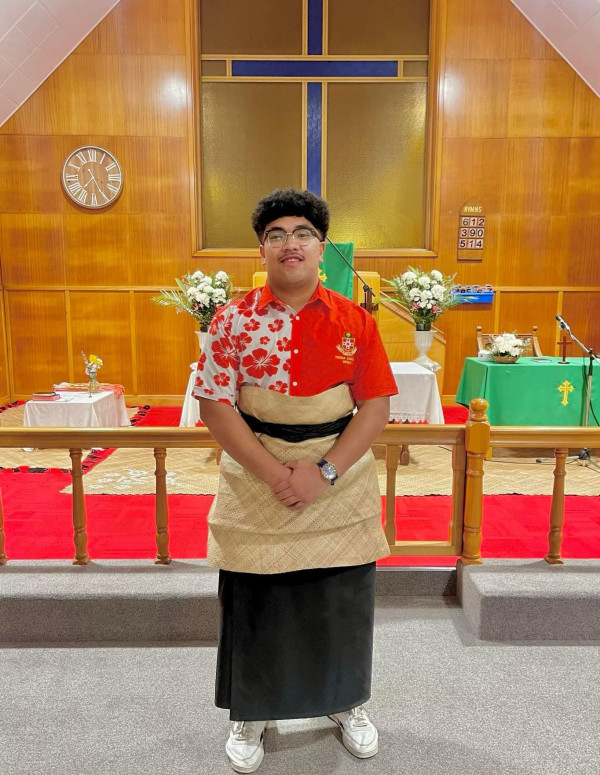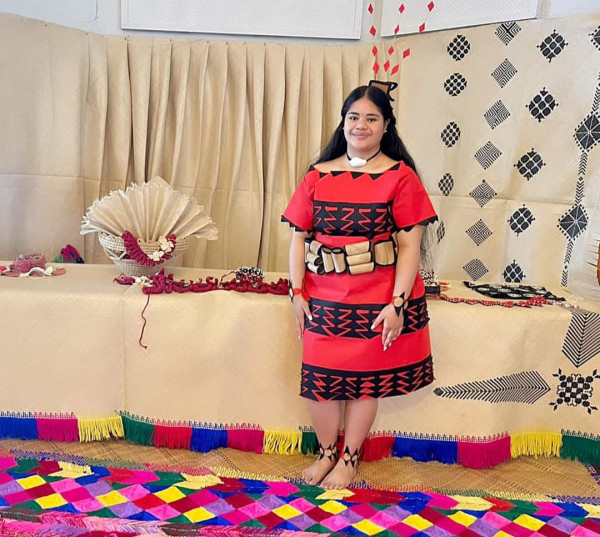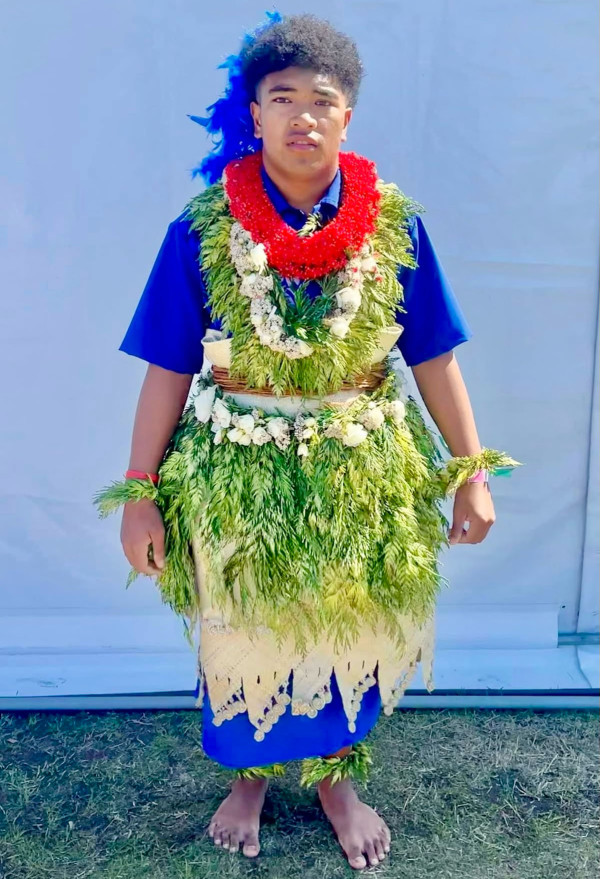“It's got everything you need… You feel like you're at home all the time when you're in Timaru”.
Canterbury is a pretty Palangi region, with over 80% of its population being European and 3.7% being Pasifika, according to the 2023 Census.
But there’s a growing community of Tongans in Timaru who have been busy celebrating Tongan Language Week this week.
Stephen Latu, 18, and Ulukilupetea Langi, 16, are two Tongan teenagers who spoke to Re: News about what growing up in Timaru is like and how they stay connected to their culture.
The journey from Tonga to Timaru
Stephen’s family came to Timaru because his dad was recruited to play for a local rugby club there in 2001, having previously played in Tonga and Japan.
He says his dad helped his team win multiple championships before working as the coach for 10 years.
But he came to New Zealand for more than just rugby — it was to create better opportunities for his kids, Stephen says.

Stephen Latu comes from Eua in Tonga. Image: supplied.
“It’s like the ultimate goal for most families in Tonga, it's to sort of move over and create a better life for their family over in New Zealand.”
Stephen says his dad helped the rest of his family migrate to New Zealand and wanted to continue living in Timaru even after he stopped playing rugby.
“Mum and dad didn't really see the need to move… They knew that they could, sort of,
build [a community] up by scratch,” Stephen says.
Stephen’s mum Sina Latu helped found the Tongan Society of South Canterbury in 2016 and says there were between 10 and 15 Tongan families in Timaru who joined back then.
She estimates there are now 250 Tongans in Timaru involved with their society and church.
Adapting to Timaru
Ulukilupetea’s story is similar to Stephen’s— her family moved to Timaru in 2014 because her dad got a job there.
She describes Timaru as “small, quiet and peaceful” and “a very safe space” where everything runs at a slow pace.

Ulukilupetea Langi comes from Eua, Haʻapai and Kolomotu'a in Tonga. Image: supplied.
Ulukilupetea lived in Tonga until she was six and misses sharing meals with her large family there, saying people in Timaru are “so welcoming” but enjoy spending time “in their own bubble” too.
She had to step out of her own bubble when she moved to her new high school two years ago, where there are only two Tongan students, she says.
She says she was initially worried about not being around people like her but being introduced to different cultures and learning to respect them has helped her grow as a person.
Stephen is now a student at Lincoln University near Christchurch, a city he says feels too big for him.
“There’s a sense of relief when you come back to Timaru because it’s just like a tight-knit group”.

Stephen is the only child in his family who wasn’t born in Tonga. Image: supplied.
Staying connected to Tongan culture
Stephen is the only child in his family who wasn’t born in Tonga and a part of him wishes he grew up there.
He learnt to speak fluent Tongan thanks to his cousin, who stayed with him when he was a child and taught him the language.
“That’s something I want to pick up with my kids, just to try and give [Tongan] to them at an early age,” he says.
Stephen’s Palangi friends have adapted to Polynesian ways and started spending time at the Youth Fale, a space created by the Tongan Society of South Canterbury.
“When you would hang with them, you couldn't really tell they were Palangi,” he says.
“Timaru is starting to tap into the culture and it’s great. Probably still is a lot of Palangis in Timaru but it doesn’t really feel like it to me.”

Ulukilupetea spends her Saturdays at church choir practice. Image: supplied.
Ulukilupetea stays connected to her culture through religion and spends her Saturdays in church choir rehearsals.
“Growing up surrounded with Tongans, every, every time we go to church, all we do is sing and sing and sing,” she says.
Celebrating Tongan Language Week
Stephen tutored students from Timaru Boys’ High School for Polyfest, a Pasifika performance festival which took place in Christchurch earlier this year.
For Tongan Language Week, he’s been leading that group on a performance tour around all of the local schools where they “bring the Tongan flair” and do multiple shows every day.
At the end of this week, his community is having a big fiefia (celebration) night to reflect on the week with a buffet dinner and more performances, he says.
Ulukilupetea will also be performing traditional dances for Tongan Language Week and says she’s really grateful her community has helped her embrace her culture.
“You really do need a village,” she says.
“People need people to survive and to grow.”
More stories:
Stop asking people if they’re going to have kids
“People put their own values onto us and think they know better for us.”
Racism impacts health, wellbeing and identity of rangatahi Māori
It shouldn't fall on young Māori to fight structural racism, researcher says.
How the art of whakairo helps these student carvers: In photos
“ I got into whakairo because this is the only place I feel safe.”